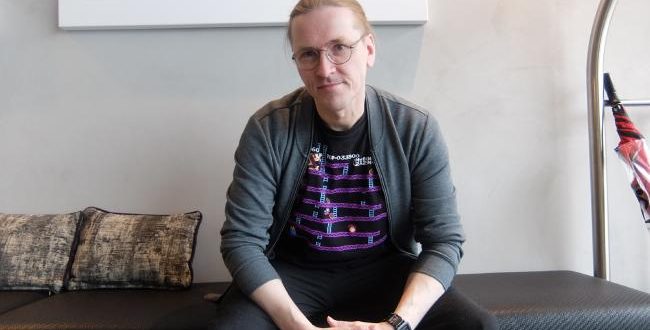The world has stumbled into a cyber arms race, according to prominent security researcher Miko Hypponen, who says Edward Snowden, who lifted the lid on wholesale surveillance by the US National Security Agency, has unintentionally kicked off a competition for supremacy not unlike the nuclear arms race.
Mr Hypponen, speaking on the sidelines of Myriad tech festival in Brisbane, said Snowden, in his desire to expose what the NSA was doing, had also ended up showing other governments what the US was up to and subsequently encouraging them to follow suit.
“Many of the governments looking at that would say ‘look at what the United States is doing, we should be doing this as well’,” he told The Australian.
“This has started a real arms race which in many ways reminds me of the other arms race we had, the nuclear arms race.
“That lasted 60 years and, while that’s sort of over, we have now started this one.”
This evolving cyber arms race could potentially be even more difficult to contain than the proliferation of nuclear weapons, he warned.
According to Mr Hypponen, the power of nuclear weapons was not in using them, it was in the deterrents that they created.
“They were very powerful but everyone knows what you have, there were 11 countries and you know not to mess with them,” he said.
“With cyber, you have no idea who has what. We know the US, Russia, China are all very active, but really we just don’t know.
“The cyber weapons exist, but their power lies in their use. It’s completely different to conventional weapons and it’s worrying.”
Mr Hypponen, who serves as chief research officer at F-Secure, where he has worked since 1991, said that governments would inevitably have to start looking at solutions such as cyber disarmament and the laws of cyber warfare.
While security incidents were now a regular feature of the overall risks faced by organisations, Mr Hypponen said that the broader implications of cyber warfare were yet to be fully assessed and things were likely to get “much worse and much more active before they get better”.
“All future crises will have a cyber element in them,” Mr Hypponen said.
“This is not like the wars moving from the real world to online, this is just a whole new domain.”
The security expert sad he was not surprised by the developments, adding that in some ways it was a logical extension of a new era of connectivity and technology into the field of battle.
“Cyber is the new theatre of war,” he said.
Mr Hypponen last year coined ‘Hypponen’s Law’, an edict that says “whenever an appliance is described as being ‘smart’, it’s vulnerable.”
He elaborated that during the past couple of decades every single computer had gone online, including smartphones and tablets, and now during our lifetime everything connected to electricity would also be online.
“The way this will change our society will be interesting,” Mr Hypponen said.
“The internet has exposed us to new kinds of risks. Before you didn’t need to worry about criminals from Brazil, and now you do.
“What the internet did was take away distance and geography. It has brought us more good than bad, and the same thing will happen with the Internet of Things.”
Mr Hypponen breaks down the dangers of having everyday appliances going online into two categories.
First, people’s administration interfaces and WiFi passwords now inhabit the public internet, which in turn increases the risk of exposing a large volume of unprotected private information that should not be online in the first place. “It’s people’s security cameras, heat pumps, and whatever, and they end up exposing entire networks,” he said.
The other problem, according to Mr Hypponen, is that these devices end up being the weakest link in the network, with manufacturers not interested in spending more money to make them more secure.
“With appliances the most important selling point is price; no one is asking for cyber security features, everybody wants the cheapest model,” he said.
“So we really are setting ourselves up for failure.”
Reader comments on this site are moderated before publication to promote lively and civil debate. We encourage your comments but submitting one does not guarantee publication. We publish hundreds of comments daily, and if a comment is rejected it is likely because it does not meet with our comment guidelines, which you can read here. No correspondence will be entered into if a comment is declined.





